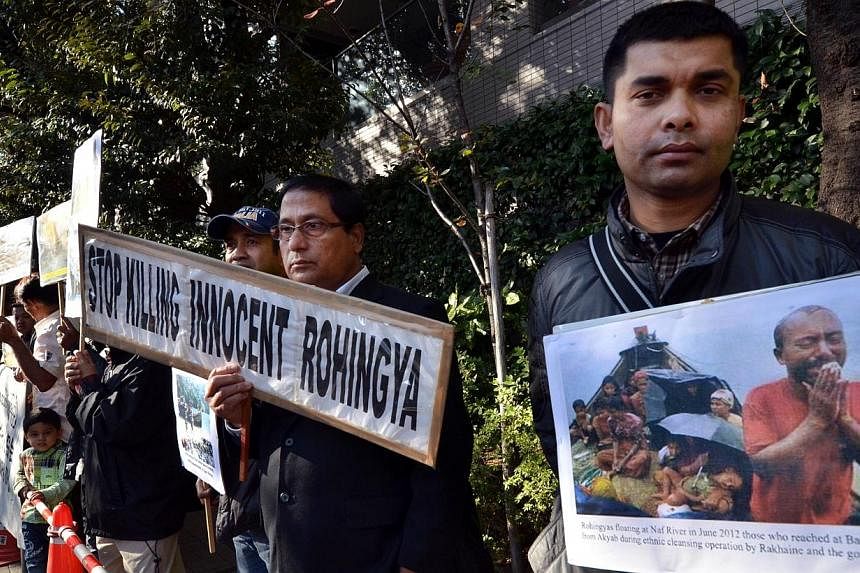NAYPYITAW (Reuters) - The United States on Thursday urged Myanmar to draft a new plan to allow the ethnic Rohingya minority to become citizens and to scrap a proposed plan to send them to detention camps if they refuse to identify themselves as Bengalis.
Most of Myanmar's 1.1 million Rohingya Muslims are stateless and live in apartheid-like conditions in Rakhine state on the west coast of the predominantly Buddhist country. Almost 140,000 are displaced after deadly clashes with ethnic Rakhine Buddhists in 2012.
The Rakhine State Action Plan will require Rohingya to identify themselves as Bengali - a term most reject because it implies they are immigrants from Bangladesh despite having lived in Myanmar for generations - in order to possibly receive citizenship.
According to a draft of the plan obtained by Reuters in September, the government has proposed that authorities "construct temporary camps in required numbers for those who refuse to be registered and those without adequate documents".
The plan violates "universal rights" and challenges Myanmar's reform efforts, said US deputy national security adviser for strategic communications Ben Rhodes.
"We would like to see a new plan that will allow the Rohingya to become citizens through a normal process without having to do that type of self-identification," he told reporters in Myanmar's capital, Naypyitaw, where US President Barack Obama is meeting leaders at a regional summit.
Mr Obama will travel to Myanmar's largest city, Yangon, on Friday to meet opposition leader Aung San Suu Kyi at her home where she spent more than 15 years under house arrest, because of her public resistance to the former military junta.
Ms Suu Kyi, who became an international icon for democracy after winning the Nobel Peace Prize in 1991, has been notably quiet on the plight of the Rohingya.
Mr Rhodes urged her to speak out. "Her voice is obviously critically important," he said.
Myanmar emerged from 49 years of military rule when a semi-civilian government took power and initiated sweeping reforms, including releasing political prisoners and lifting restrictions on the media.
But Mr Obama told the local Irrawaddy website and magazine in an interview published on Wednesday that Myanmar is "backsliding" on reforms, citing issues including a crackdown on journalists and the treatment of the Rohingya.

